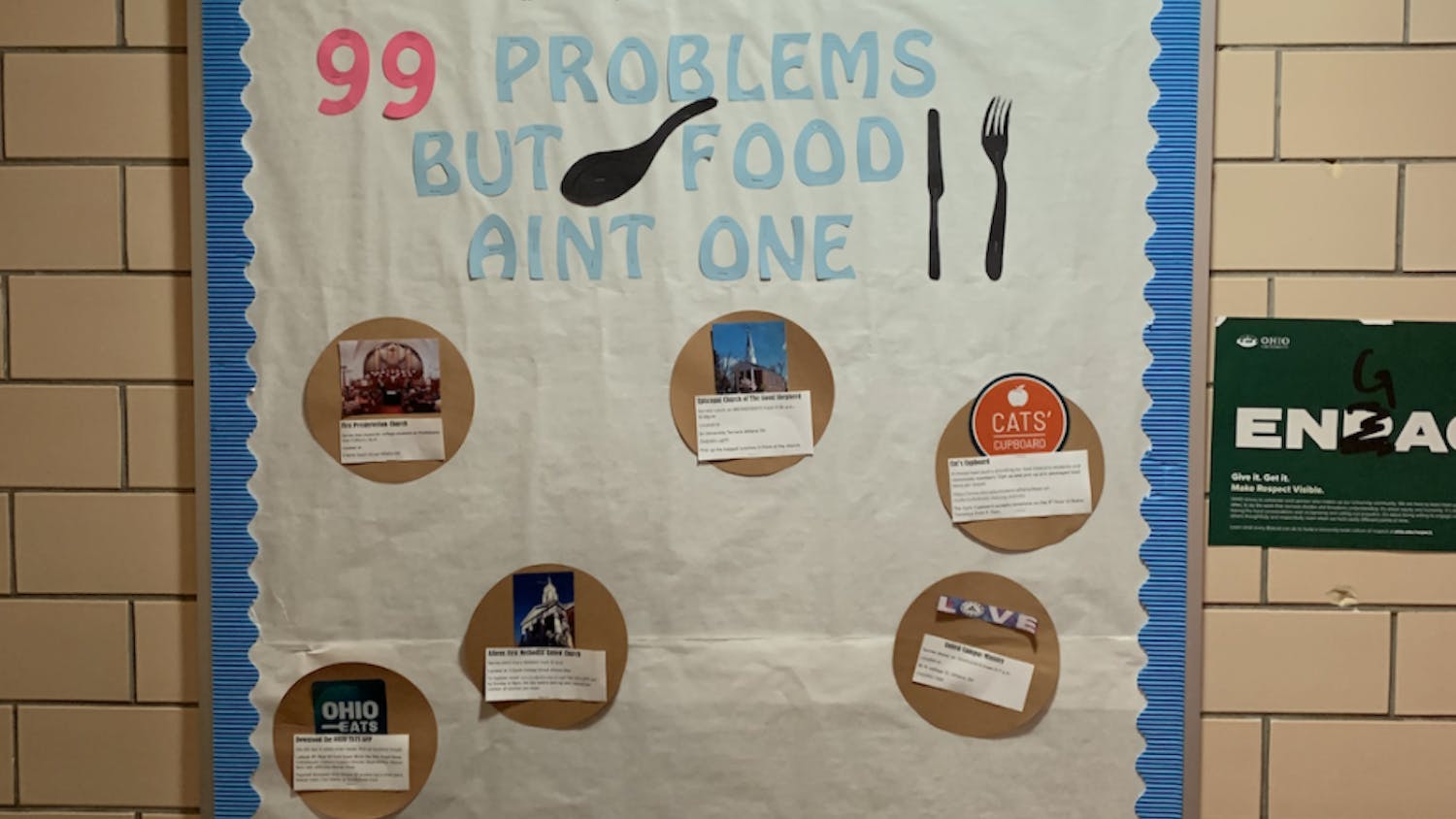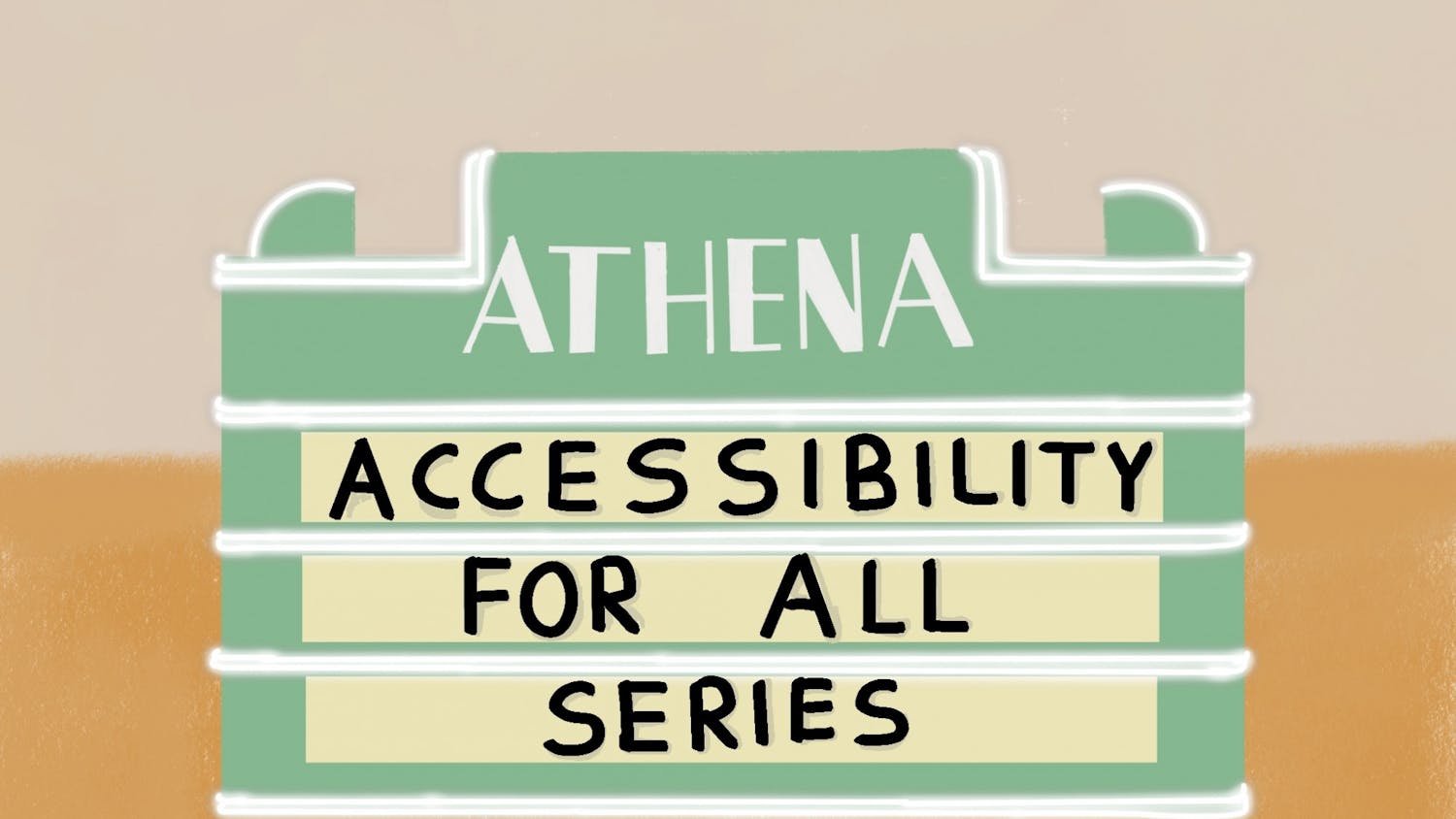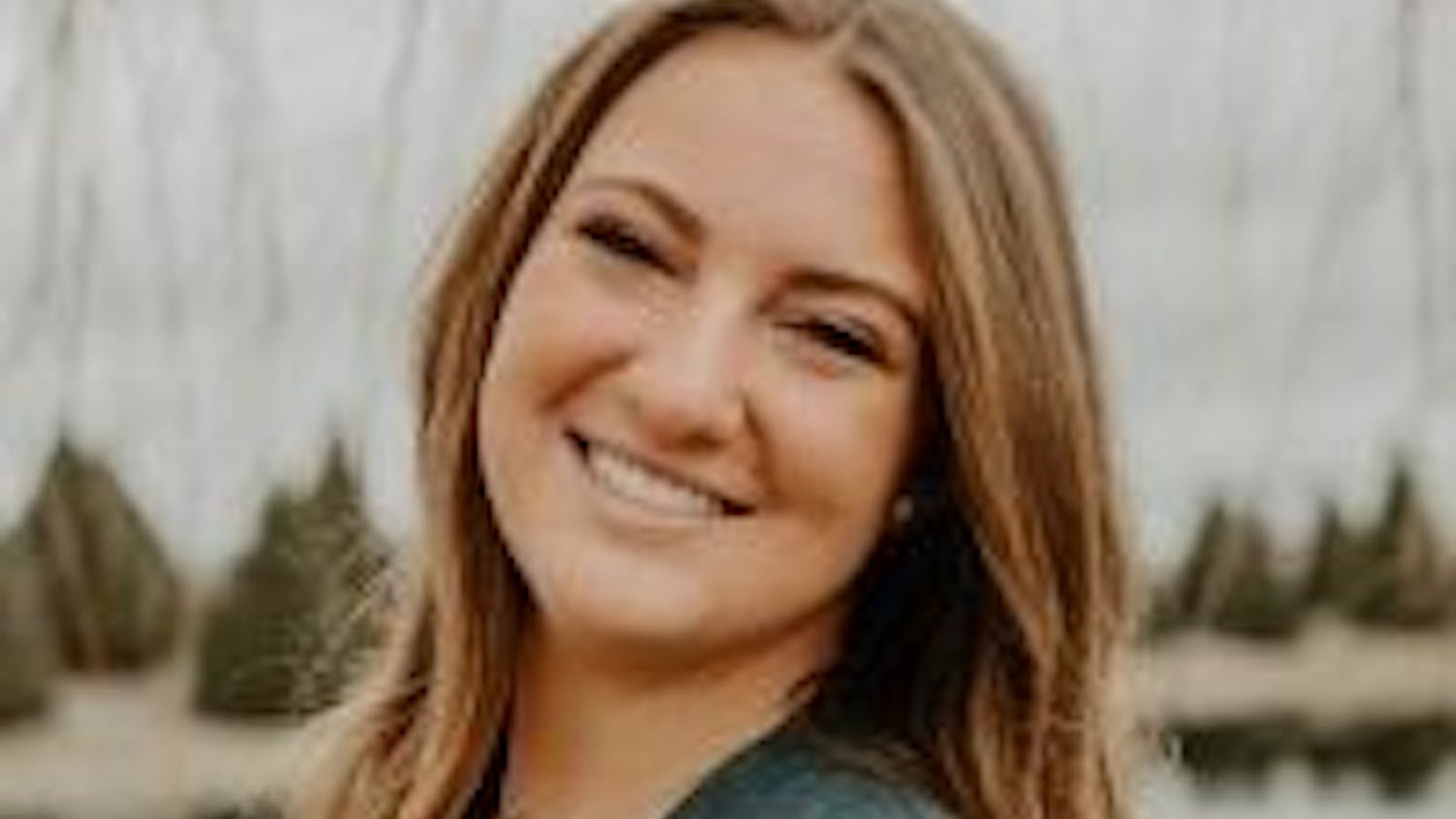While organizations such as the Athens City Commission on Disabilities work outside of Ohio University to support community members who have disabilities, students are ensuring that their peers within the university sphere have additional resources as well. This cause is special to Via Matulich, a senior studying linguistics.
Matulich went to the involvement fair during her freshman year at OU and signed up for the clubs she found interesting. Matulich recalled applying for sorority recruitment but didn’t receive any emails updating her about the future steps necessary to join Greek life. She said she must have written down the wrong email.
“And then I was like, I wouldn’t do well in rush anyway. It’s not built for neurodivergent people,” Matulich said.
This realization led to an idea that struck Matulich: What about a fraternity for neurodivergent people?
“It was basically a joke. We were like, ‘Let’s make merch,’” Matulich said. “And then I was like, ‘No, let’s do it and make a whole group of friends and have people connect with other neurodivergent people because the way that we form relationships is so much different than the neurotypical experience.’ And so, when we’re all together, it’s a match made in heaven.”
Alpha Delta Delta was born out of Matulich’s plan to create an atmosphere supportive of people who are neurodivergent. Matulich is the founder and now president of the fraternity, which gained university approval in the 2021 Fall Semester.
The fraternity hosts guided discussions every other week with tips and information relating to the meeting’s specific topic. Currently, the organization meets Mondays at 6 p.m. in Morton Hall, room 222.
Matulich’s efforts of establishing a socially inclusive organization have also included helping other students learn how to receive accommodations from the university.
“I created a step-by-step guide for getting accommodations through accessibility services, and the first step is, obviously, getting a diagnosis,” Matulich said.
Matulich said half or more of the members of Alpha Delta Delta are undiagnosed. She refers members to Counseling and Psychological Services on campus or to College2Careers, a program offered by Opportunities for Ohioans with Disabilities that advocates for students with disabilities in order for them to have accommodations in school and after college. Although Matulich provides other students with valuable resources, they would sometimes tell her the programs are booked for months and cannot schedule them.
The Office of Accessibility Services at OU provides students who have disabilities with appropriate accommodations to support equal access to the college experience. However, students like Matulich don’t feel the process of receiving accommodations is accessible for people who have neurodivergent disabilities.
“I had diagnoses from a doctor and a psychologist for both ADHD and autism spectrum disorder,“ Matulich said. "And so, they took my request seriously, but several of my friends only got an ADHD diagnosis and were not treated like serious applicants.”
To start requesting accommodations via Accessibility Services, a person must call the office’s number on the website, 740-593-2620. Matulich said the applicant must write personal statements and small essays as well as get paperwork signed by doctors. These steps may seem simple, but they can add up to be overwhelming.
“I was stuck for a month,” Matulich said. “I didn’t get into accommodations until the very end of my first semester because I was stuck on 'I have to make a phone call to do an interview?' and then all of us neurodivergent people just generally have imposter syndrome. So, you’re like, ‘But what if they tell me that I’m really not neurodivergent? What if I’m faking it the whole time?’”
Christina Perez, director of Student Accessibility Services, said accommodations are individualized and partially determined based on how students are affected.
“We look at both the (third-party) documentation and the students' perspective,” Perez said. “We also have a conversation with each student when we're determining accommodations to make sure that we really have the whole picture.”
The reason the office requests documentation from a third party is to better understand what a student is experiencing because most of the students they work with have “invisible disabilities,” Perez said.
When trying to understand what accommodations someone may personally need or want to request, Matulich tells the members of Alpha Delta Delta to think of what would be needed on a “worst day.”
“As opposed to, what’s your average? What can you usually do? We’re so trained to be like, ‘No, I’m capable. Look, I’m capable. I can do things,’” Matulich said.
Among the issues surrounding accessible education for people who have neurodivergent disabilities is the problem of inaccessible infrastructure on campus. People who have physical disabilities face barriers due to the inaccessible infrastructure, something Natalie Washington, a senior studying special education mild to moderate, observed.
Washington is the president of the Student Council for Exceptional Children, or SCEC, at OU. The organization exists to improve the educational system for people who have disabilities.
One of the activities SCEC did last semester was analyze the extent to which buildings on campus were accessible for people who have disabilities. Washington looked at the Research and Technology Center.
“They did have a ramp that was handicap accessible, but it was also like so many doors to get to, and there wasn’t any buttons to open the doors,” Washington said. “So, even just getting in the building was very tough, and it’s an old building. It wasn’t out in the open. I had to look for the ramp and then even the elevator to get to the floors with classrooms that was very rickety and old.”
Matulich and Washington want people to know those who have disabilities and do not have proper accommodations or the same access to buildings or to the college experience as able-bodied people are not incapable.
“I think one of the big things that people fail to understand is neurodivergent people, like specifically people with ADHD and autism because that’s what I can speak from experience, they’re not incompetent compared to the neurotypical person,” Matulich said. “But there are certain scenarios in which I will not be able to function as a neurotypical would. And, even if that instance is one in 50 days, I need to be able to function and have the accommodation.”
People can also start having conversations about the necessity of accommodations, Washington said, which helps normalize the subject.
“Everyone has different needs, just in general in life,” Washington said. “We all have our unique needs. It’s not a special thing to have accommodations or needs because we all do it every day.”






